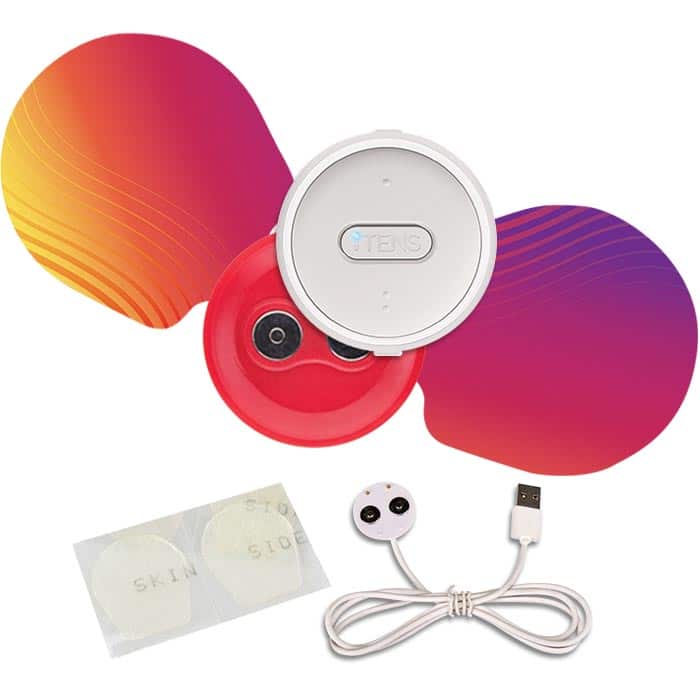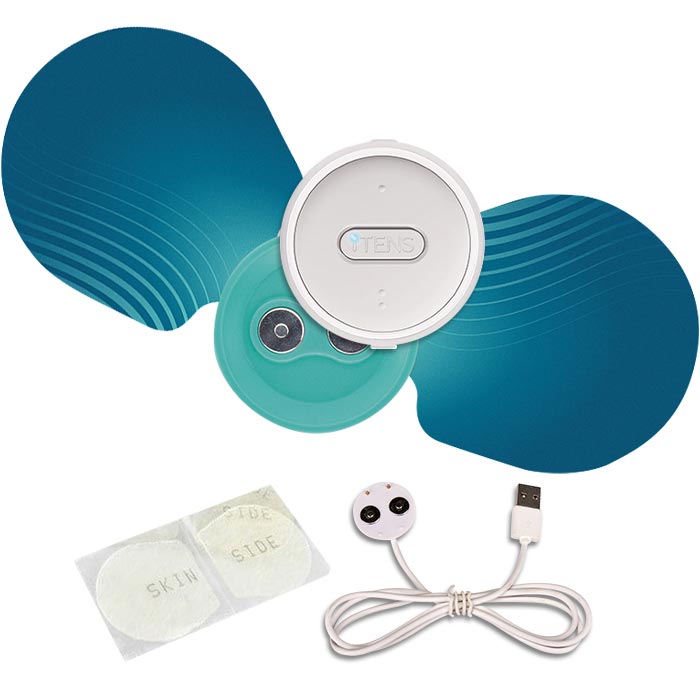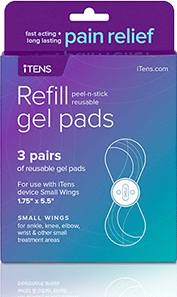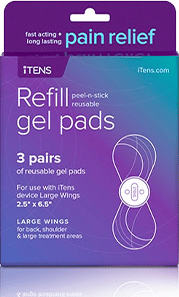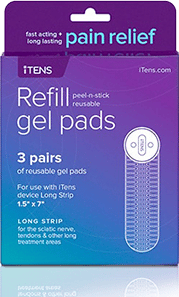
The Transcutaneous Electrical Nerve Stimulation (TENS) unit is a device that can help alleviate various pain conditions. Recent research has suggested that TENS units may also be effective in treating depression. By blocking pain signals and triggering the release of endorphins, TENS units may provide relief for individuals experiencing symptoms of depression. However, it is important to note that the effectiveness of TENS units for depression may vary from person to person.
Depression is a serious medical condition that requires proper diagnosis and treatment. People with this condition may resort to unhealthy coping mechanisms such as substance abuse or isolation. Effective interventions often include psychotherapy, medication, lifestyle changes, and support from mental health professionals, friends, and family. Another alternative treatment is the use of a TENS unit. This article will present what a TENS device for depression is, including its mechanism of action and benefits.
What Is a TENS Unit for Depression?
Depression is a mental disorder that involves persistent feelings of sadness, hopelessness, and diminished interest in daily activities. It can impact the ability of the person to function, affecting their work, relationships, and overall well-being. Symptoms of depression may include changes in appetite or weight, difficulties sleeping, and a lack of energy. In some cases, individuals may also experience physical pains without any clear cause.
A TENS unit for depression is a small, battery-operated device that uses electrical pulses to stimulate the nerves. It consists of two or more electrodes that people place on the treatment area. Generally, there are two types of TENS machines: wired and wireless. A wired TENS machine has a handheld push-button remote and wires connecting to the electrode pads.
On the other hand, a wireless TENS machine utilises Bluetooth technology to connect to a smartphone app. It is popular among individuals who prefer convenient and on-the-go pain management. Furthermore, the adhesive electrodes are interchangeable in different sizes and shapes. This can help fit different areas of the body and deliver appropriate stimulation levels.
Effects of Depression on Daily Life
- Depression may lead individuals to avoid social interactions, causing them to withdraw from friends and family.
- People with this medical condition often experience changes in their sleep, such as insomnia or oversleeping.
- It can affect concentration and cognitive functions, making it challenging for individuals to focus on tasks.
- Constant feelings of fatigue and a lack of energy are common, making it harder for people to engage in regular activities.
- Depression may lead to changes in appetite, resulting in either overeating or a loss of interest in food.
- Individuals with depression may experience heightened emotional responses, including intense sadness, irritability, or a general sense of numbness.

How Does a TENS Unit for Depression Work?
A TENS unit for depression works by stimulating the nerves in the body. When the TENS unit is placed on the skin, it sends small electrical currents to the nerves. This can help reduce feelings of pain and discomfort. Additionally, electrical stimulation can help to improve mood and overall well-being by activating the natural pain-relieving mechanisms of the body.
Moreover, a TENS unit can interrupt pain signals that are being sent to the brain. This can help to reduce the perception of pain and can also have a positive impact on mood. By disrupting the pain signals, the TENS unit can also help alleviate physical discomfort, which can improve mental and emotional well-being.
Furthermore, a TENS unit can boost blood circulation. The electrical pulses can help to stimulate the muscles and improve blood flow to the affected areas. This increased circulation can help to reduce stiffness in the body, which may contribute to a more positive mood. Overall, this mechanism of action can potentially make a TENS unit a helpful tool in managing depression.
Mechanisms at Work
The mechanisms at work involve the Gate Control Theory of Pain. This theory proposes that when a TENS unit is used, it sends electric currents to the nerves, which can help reduce the pain signals being sent to the brain. This process may alleviate physical discomfort and potentially improve mood as well.
Another mechanism of TENS is by triggering the release of endorphins. Endorphins are the natural painkillers and mood boosters of the body. When a TENS unit stimulates the nerves, it can lead to an increase in endorphin production. This can result in feelings of relaxation, happiness, and overall well-being.

Benefits of Using a TENS Unit for Depression
A TENS unit for depression is a non-invasive and drug-free approach. Unlike medication or invasive procedures, a TENS unit uses electrical pulses to stimulate the nerves and block pain signals. This can be a more natural approach for those who prefer to avoid medication or are looking for complementary remedy options.
In addition, TENS is customisable. Users can adjust the intensity and frequency of the electrical impulses to find the most effective treatment of pain for their individual needs. This flexibility allows for personalised treatment plans, making it a versatile and adaptive tool for managing depression.
Moreover, TENS units are portable, making them a convenient option. Users can carry the electrical device with them and use it as needed, providing pain relief from pain symptoms wherever they may be. This can be especially beneficial for managing depression in various settings and situations. Furthermore, people can use TENS to treat other medical conditions aside from depression. These include musculoskeletal pain, neuropathic pain, and visceral pain conditions.
Improving Quality of Life
Improving the quality of life for people with depression is crucial for their overall well-being and societal health. When individuals experience enhanced well-being, they are better equipped to engage in daily activities, maintain relationships, and contribute positively to their communities. Addressing depression not only benefits the individuals directly affected but also reduces the burden on healthcare systems.
TENS plays a vital role in this pursuit. It has shown promise in providing relief from depression without the side effects often associated with medications. By incorporating TENS into the treatment toolbox, individuals with depression have an additional avenue to improve their quality of life.
Conclusion
A TENS unit for depression actively stimulates nerves through gentle electrical pulses, relieving physical discomfort and positively impacting mood. Whether opting for a wired or wireless device, individuals can conveniently manage on-the-go pain. Additionally, the ability of TENS to enhance blood circulation may contribute to an improved sense of well-being. With its convenience and adaptability, TENS has become a promising tool for individuals seeking an alternative method to alleviate depression.
Utilising a TENS device for depression offers a drug-free and non-invasive solution. Its customisable features empower users to tailor treatment to their unique needs, fostering a versatile approach to pain management. Beyond depression, these devices prove beneficial for addressing various pain conditions, highlighting their adaptability. Embracing TENS as part of the treatment toolbox offers a valuable pathway towards a brighter and healthier future for individuals grappling with depression. People interested in wireless TENS devices may check iTENS Australia.








